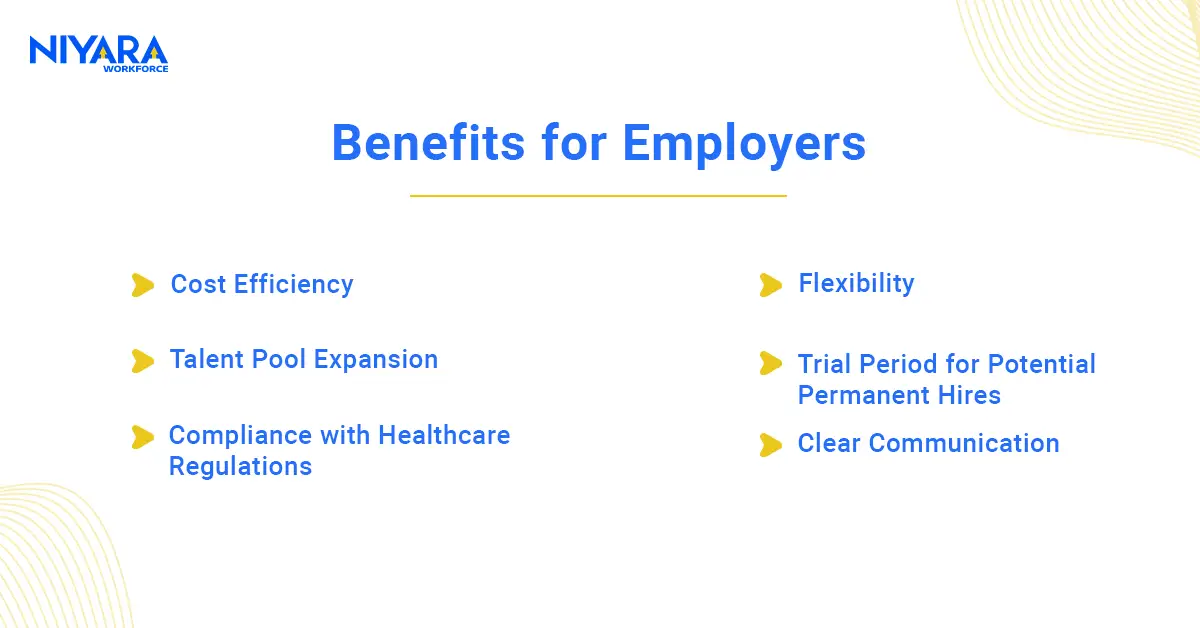Seasonal employment offers candidates many advantages, whether supplementing income, building new skills, or filling any gaps on a candidate’s resume.
Seasonal workers offer organizations an efficient solution to meeting peak demand.
What is Seasonal Employment?
Seasonal jobs provide the ideal opportunity to gain experience in a new industry or role without making a long-term commitment.
Candidate might work in customer service during the holiday rush season or as an accountant during tax season; seasonal employment opportunities provide invaluable experience while filling gaps in employment requirements. One will work alongside familiar team members in an environment that supports them.
Employers looking to attract and retain seasonal workers should emphasize the flexibility and non-commitment required of seasonal positions.
Employers could host or participate in local job fairs to meet potential candidates while showcasing company culture. Furthermore, companies could consider rehiring former seasonal employees to reduce training costs; this is particularly effective when they have proven effective and reliable.
How Many Hours Do Seasonal Employees Work?
Companies often hire seasonal workers to meet customer demand during specific times of the year. Beyond meeting customer demands, hiring seasonal employees may have financial benefits, but these workers may only qualify for part-time status or benefits.
Companies must remain aware of all legal implications surrounding this employment arrangement.
Seasonal employment often means that employees are less committed to the organization than if they were full-time, which can negatively impact employee performance and productivity and create potential legal issues for employers.
Benefits for Employers

Employing seasonal workers allows businesses to meet peak demand at times of high business volume without being bound by full-time employment costs all year.
Furthermore, this strategy saves companies money as employees only require pay for the needed months.
Various industries hire seasonal workers at different points throughout the year, depending on their business needs and customers’ preferences.
Retail stores and restaurants with heavy foot traffic during holidays hire temporary staff to manage increased customer volume; hotels that host vacationers also employ staff during summer peak seasons when there is high tourism volume.
Seasonal jobs can provide an ideal stepping-stone to permanent employment for individuals new to an industry and eager to showcase their abilities. Some companies screen seasonal employees for positions they might have available later, allowing individuals to establish themselves at a company and build their resumes.
As seasonal employment is only temporary, employers should clarify how long their jobs will last and their responsibilities during the hiring process.
This should be included in their job description and an employment contract that employees should sign off on to acknowledge. Employers using the look-back method for determining full-time employees may only need to offer health coverage after some time because seasonal workers only tend to work certain times of the year.
Types of Employment

Employment can be categorized into various types based on different criteria. Here are some common types of employment:
Full-time Employment
Full-time jobs, which form the core of many organizations, need employees to work a typical week of 35-40 hours. These positions offer comprehensive benefits, including health insurance and retirement plans, to ensure the health and safety of workers.
Full-time workers generally receive benefits beyond compensation for their hard work. They also foster dedication and loyalty.
Part-time Employment
Fewer daily commitments characterize part-time jobs with flexible working hours and often total under 35 hours.
Although it gives employees some advantages, they tend to be limited compared to the benefits of full-time roles. Despite the shorter time, part-time workers perform essential roles in various fields, contributing to the workforce’s flexibility and diversity.
Temporary Work
Temporary work, essential to meeting the organization’s short-term needs, can last between a couple of weeks and some months. It provides a temporary solution for immediate staffing needs and has benefits that vary based on the employer’s policies.
Contract Employment
Contract work, as defined by fixed term contracts, allows employees to take part in specific tasks or projects during a specified time. The arrangement enables the freedom to work as you please, even while assuming the responsibility for managing taxes and other benefits independently.
The concept of contract employment is attractive to employers looking for specialized expertise and individuals seeking various working experiences.
Freelancer
Freelancers who are independent contractors traverse an environment governed by projects-based assignments. They control the selection of the projects they work on and their working times but are responsible for coordinating tax or insurance and client relationships. Today, in the gig economy, freelancers can work with various clients and manage multiple clients and projects.
Remote Employment
Remote work, enabled by advancements in technology, allows people to escape traditional workplaces’ constraints.
Flexibility and work-life balance Remote work permit professionals to complete their work anywhere with internet access. Companies around the globe embrace remote work.
Remote work has incorporated modern working practices that boost productivity and retention.
Internship
Internships bridge the classroom and practical experiences, providing students and recently graduated graduates with exposure to their fields of study.
Whether paid or unpaid, internships are a great way to learn and build a network, often paving the way to future career possibilities. Employers recognize them as a means of nurturing the talent pool; internships are crucial in creating a future workforce.
Hybrid Employment
Hybrid employment is a flexible work model that combines remote and in-person work. It allows employees to split their time between working from home and in the office.
Blue Collar and White-Collar Seasonal Employment
Seasonal employment is essential to the Indian labor market, providing temporary job opportunities across various industries. This type of employment caters to different sectors, including blue-collar and white-collar jobs, ensuring the workforce can meet the fluctuating demands of other seasons.
Blue-Collar Seasonal Employment
Blue-collar seasonal employment is prevalent in agriculture, construction, retail, and tourism industries. For example, agricultural workers are in high demand during the harvest season to manage the increased workload. Similarly, the construction industry sees a spike in hiring during dry seasons when projects can progress without weather-related delays.
Example: In Punjab and Haryana, the harvest season brings a surge in demand for laborers to work in the fields. Often migrating from other states, these workers take up temporary jobs to meet the seasonal demand.
White-Collar Seasonal Employment
On the other hand, white-collar seasonal employment is often seen in sectors like finance, education, and information technology. Accountants and auditors, for instance, are frequently hired temporarily during the financial year for tax preparation and auditing services. Educational institutions might employ additional staff during admission seasons or examination periods.
Tourism Sector
The tourism sector provides ample white-collar seasonal opportunities, especially during peak travel seasons like summer vacations and winter holidays. Positions such as tour guides, travel agents, and hotel management staff are in high demand. These jobs require specialized skills and often involve direct customer interaction.
E-commerce and Retail
The e-commerce and retail sectors experience a spike in white-collar seasonal employment during festive seasons like Diwali and Christmas. Companies hire temporary customer service, marketing, and inventory management staff to handle increased sales volumes.
Adoption of Seasonal Employment in India
Seasonal employment is widely adopted in India due to its economic structure and varying industry demand. It provides a flexible labor force that can be scaled up or down based on seasonal needs, benefiting employers and employees.
How Seasonal Employment Happens
Recruitment Agencies
Employers often use recruitment agencies to find seasonal workers. These agencies maintain a pool of candidates ready for temporary jobs.
Online Job Portals
Websites like Naukri, Indeed, and LinkedIn feature seasonal job listings, making it easy for employers to reach a broad audience and job seekers to find opportunities.
Local Advertisements
In rural and semi-urban areas, seasonal job opportunities are often advertised through local newspapers, community boards, and word-of-mouth.
Government Programs
Various government initiatives and programs facilitate the employment of seasonal workers, particularly in the agricultural sector.
Social Media
Platforms like LinkedIn, Facebook, and WhatsApp groups are increasingly being used to advertise seasonal job openings, quickly reaching a wide network of job seekers.
